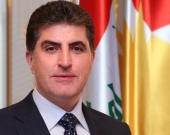Criminal probe sought over US intelligence leaks

Director of National Intelligence James Clapper confirmed Saturday that US spy agencies use the PRISM program to gather data trails left by targeted foreign citizens using the Internet outside the United States.
But in an interview with NBC News, portions of which aired Sunday, he called the disclosures "literally gut-wrenching" and said they had caused "huge, grave damage" to US intelligence capabilities.
"The NSA has filed a crimes report on this already," Clapper told NBC, referring to the leaks to The Guardian and The Washington Post.
He said he was "profoundly offended" that a disgruntled intelligence officer was a source for the leak to the Post. "This is someone who for whatever reason has chosen to violate a sacred trust for this country," he said.
"And, so, I hope we're able to track down whoever's doing this, because it is extremely damaging to, and it affects the safety and security of this country."
Glenn Greenwald, the Guardian reporter who brought to light the PRISM program and a separate program that scoops up US phone records, said the public had a right to know and openly debate what the government was doing.
"Every time there's a whistleblower, someone who exposes government wrongdoing, the tactic is to demonize them as a traitor," he said on ABC's "This Week."
"What they were seeing being done in secret, inside the United States government, is so alarming they simply want one thing. And that is, they want the American people to learn about this massive spying apparatus and what the capabilities are, so we can have an open, honest debate."
Clapper said he understood public concerns about the invasion of privacy and threats to civil liberties, but that "a lot of what people are seeing and reading in the media is a lot of hyperbole."
The intelligence chief has declassified some details of the PRISM program in the face of a storm of controversy over suggestions that the government had backdoor access to the servers of Internet giants like Google, Facebook and Yahoo.
"PRISM is not an undisclosed collection or data mining program," he said.
"It is an internal government computer system to facilitate the government's statutorily authorized collection of foreign intelligence information from electronic communication service providers under court supervision."
Internet service providers denied they had given the government unfettered access to customer data, insisting they did so only when compelled by law.
Under PRISM, which has been running for six years, the US National Security Agency can issue directives to Internet firms demanding access to emails, online chats, pictures, files, videos and more uploaded by foreign users.
But Clapper's statement described a system whereby the government must apply to a secret US court for permission to target individuals or entities, then issue a request to the service provider.
"The government cannot target anyone under the court-approved procedures... unless there is an appropriate, and documented, foreign intelligence purpose for the acquisition" to prevent threats like terror, cybercrime or nuclear proliferation, Clapper said.
He admitted that data on US citizens might be "incidentally intercepted" in the course of targeting a foreign national, but said this would not normally be shared within the intelligence community unless it confirmed a threat.
PRISM was revealed shortly after The Guardian uncovered another intelligence program under which the NSA hoovered up the telephone records of millions of US citizens.
Representative Mike Rogers, who chairs the House Intelligence Committee, said the government began storing the phone records after the 9/11 attacks in 2001 upon learning that the phone companies routinely destroyed them.
Access to the records involves a "very strict court-order approval process. It has to be a foreign person believed to be on a foreign land," he told "This Week."
Senator Diane Feinstein, who chairs the Senate Intelligence Committee, said she was prepared to hold public hearings, but added: "Here's the rub, the instances where this has produced good -- has disrupted plots, prevented terrorist attacks, is all classified."
Obama has defended the phone and Internet data trawls, saying America was "going to have to make some choices between balancing privacy and security to protect against terror.
But civil liberties and privacy groups have raised alarm at both programs, which some have branded "Orwellian" and possibly unconstitutional.
AFP













